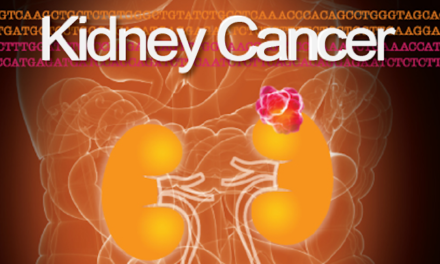Robert R. Dreicer, MD, presented “Updates in Treatment of Renal Cell Carcinoma” during the 21st Future Directions in Urology Symposium in August 2021 in Charlottesville, Virginia.
How to cite: Dreicer, Robert R. “Updates in Treatment of Renal Cell Carcinoma.” August 2021. Accessed Sep 2025. https://grandroundsinurology.com/updates-in-treatment-of-renal-cell-carcinoma/
Updates in Treatment of Renal Cell Carcinoma – Summary
Robert R. Dreicer, MD, MS, MACP, FASCO, Associate Director for Clinical Research and the Deputy Director of the University of Virginia Cancer Center, discusses the challenges in picking an optimal front-line regimen for the treatment of renal cell carcinoma and the impact of adjuvant immuno-oncology (IO) therapy. He cites data from four trials (CheckMate 214, Keynote-426, CheckMate 9ER, and CLEAR) before outlining the challenges in choosing an optimal front-line regimen. Dr. Dreicer points out that there is no comparative data currently available before explaining that tyrosine kinase inhibitors (TKIs, formerly the standard of care for kidney cancers) are toxic, challenging drugs that impact a patient’s quality of life. Dr. Dreicer outlines the therapies available today, including ipilimumab plus nivolumab (IPI-NIVO) which he characterizes as challenging for the first couple of months but well-tolerated in the last ~20 months during which patients undergo a maintenance regimen of nivolumab. He points out that treatment can be stopped after two years for patients that respond well. Dr. Dreicer asserts there is no equivalent conclusion with a TKI checkpoint. Dr. Dreicer then turns his discussion to the KEYNOTE-564 study on pembrolizumab versus placebo as post-nephrectomy adjuvant therapy for patients with renal cell carcinoma. He outlines the study design and eligibility criteria before displaying the disease-free survival (DFS) data showing the adjuvant therapy resulted in a 32 percent reduction in recurrence or death. Dr. Dreicer argues that for patients who can access an IO-based regimen, IPI-NIVO should be the standard of care, advising that while there is not one “right answer” to the optimal treatment question, practitioners ought to use one regimen, figure out what it’s toxicities are, and learn how to use it well. Dr. Dreicer then outlines questions that will emerge if an adjuvant checkpoint inhibitor becomes a standard of care, citing disruption to the front-line paradigm, the role of subsequent IO therapy, progression while on adjuvant therapy, and progression following adjuvant therapy. Dr. Dreicer emphasizes the need for other trials and the need to develop therapeutics that work in immune-checkpoint resistance.
About the 21st Future Directions in Urology Symposium:
Presented by Program Chair and Grand Rounds in Urology Editor-in-Chief E. David Crawford, MD, The Future Directions in Urology Symposium (FDUS) is an annual urology think tank and non-CME educational summit that brings together industry figures and experts to discuss the current state of genitourinary care and define future directions in treatment. Dr. Dreicer delivered this educational activity during the 21st iteration of the meeting in August 2021 in Charlottesville, Virginia.
ABOUT THE AUTHOR
Robert Dreicer, MD, MS, MACP, FASCO, is the Associate Director for Clinical Research and the Deputy Director of the University of Virginia Comprehensive Cancer Center in Charlottesville, Virginia. He serves as Section Head of Medical Oncology and Co-Director of the Paul Mellon Urologic Institute. He is also a Professor of Medicine and Urology at the University of Virginia School of Medicine. He previously served as Chair of the Department of Solid Tumor Oncology at the Cleveland Clinic. Dr. Dreicer is board-certified in internal medicine and oncology and he specializes in the management of genitourinary malignancies, as well as the design and conduct of clinical trials in urologic oncology. Dr. Dreicer received his BS from Colorado State University and his MS from the University of Texas Graduate School of Biomedical Science in Houston, Texas. He received his MD from the University of Texas Medical School in Houston before completing an internal medicine residency at Indiana University in Indianapolis. He then went on to a medical oncology fellowship at the University of Wisconsin Carbone Clinical Cancer Center in Madison, Wisconsin. Dr. Dreicer has published widely in genitourinary oncology and served as principal investigator of a large number of studies in genitourinary neoplasms. He served as Co-chair of the National Cancer Institute Genitourinary (NCI GU) Steering Committee from 2012-2018 and is a member of the editorial board of the New England Journal of Medicine Journal Watch Hematology/Oncology and the American Board of Internal Medicine (ABIM) Medical Oncology Longitudinal Test Assessment Committee.

